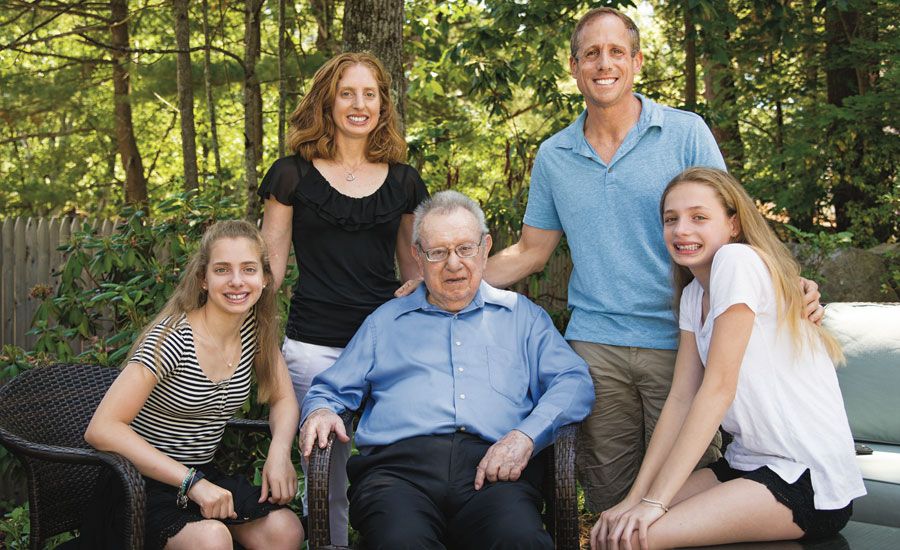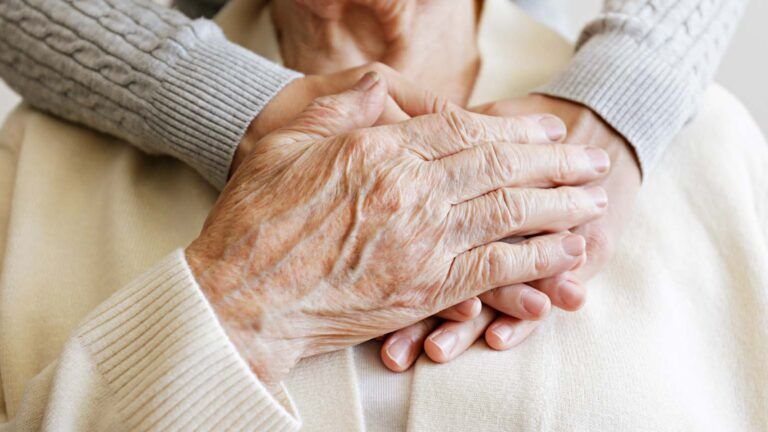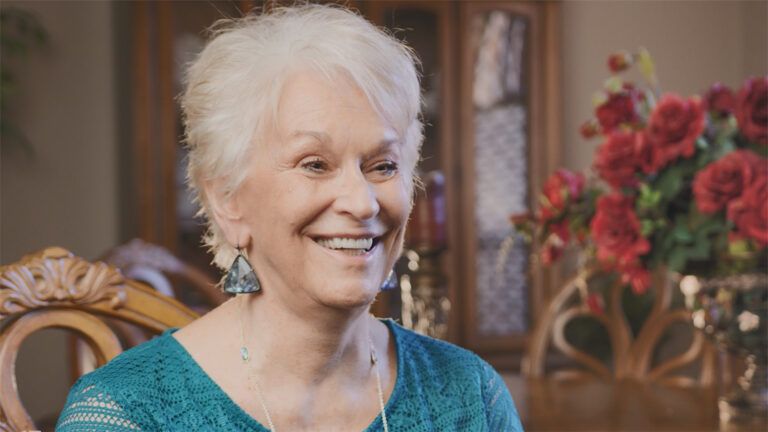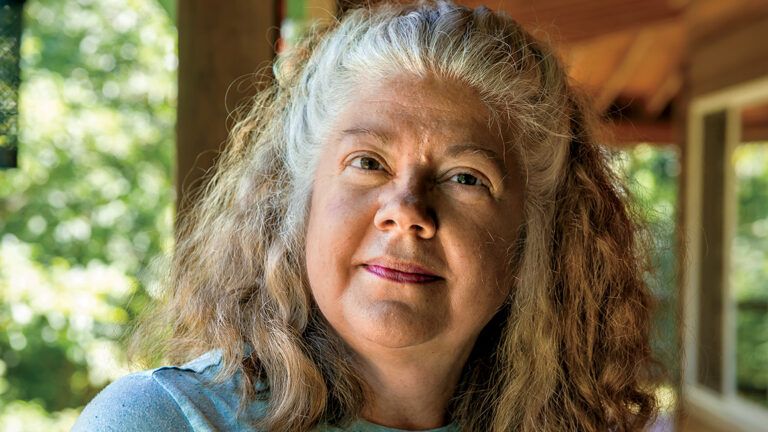My wife, Nova, and I sat on the front porch of her mom’s place at the beach, where we were spending the weekend. Our nine-year- old twin daughters, Sophie and Lily, were in bed.
“I’m worried, Peter,” Nova said.
I winced. I’d just broken the news that my 89-year-old father, who was in a rehabilitation facility after contracting a potentially deadly bacterial stomach infection, would probably have to sell his house in New Jersey and move close to us in Massachusetts.
“I’m worried about losing the life we have,” Nova said. “You’re a good son, and you’re doing the right thing. But we’re so stretched.”
READ MORE: 7 TIPS FOR COMMUNICATING WITH OLDER PARENTS
Nova was right about that. I thought it was hard enough looking after my dad before his hospitalization. He’d been living on his own in New Jersey for two years, ever since my mother died. He was stubborn and resilient, a Holocaust survivor from Hungary. He had managed to cope after being cared for by Mom in a traditional marriage his whole adult life.
Of course, you had to look past the weeds in the yard and the dirty dishes all over the house. But he’d survived.
My own immediate family had survived too—barely. On top of working two jobs with crazy hours—doing the finances for technology start-ups and managing a food-service-business franchise—I tried my best to juggle Sophie and Lily’s dance recitals, swimming meets and school-band performances. Most of Nova’s and my communication consisted of working out family logistics.
I was a maxed-out caregiver. Part of the sandwich generation. And now Dad would need even more care. On my last visit to the rehab center, he’d cried as I prepared to leave. My father, who never admitted weakness.
“Don’t go,” he pleaded. “I’m going to die in here, like your mother did.” Mom had died while in rehab after falling and breaking her hip.
“Dad, don’t say that!” I said. I tried not to show what I felt—that whatever flicker of hope I’d nurtured that he’d continue to live on his own after recovering from the infection was now totally extinguished.
“I’ll make you a promise,” I said. “When you get out of here, we’re going to have chowder together at Legal Sea Foods.” That was Dad’s favorite restaurant in Boston. We went every time he visited.
He brightened a little at that. But what kind of promise was it? The same kind of promise I now made to Nova.
“We’ll figure it out,” I said to her on the porch. “Everything will be okay.”
READ MORE: A POSITIVE ATTITUDE ABOUT AGING
God knows I wanted to make good on my promises to my family. But how? Nobody prepares you to be a caregiver. Especially not when you’re a man. Rightly or wrongly (wrongly, in my opinion), women often shoulder the burden of caring for aging parents, even when they have kids of their own to raise.
I don’t have sisters, just one younger brother, Rob, who lives in California. Rob and I make a great team, and he went to heroic lengths to visit Dad and help out in person and by phone.
But when it became clear that Dad’s illness would end his two-year experiment of being on his own after Mom’s death, I knew I would have to take on the responsibility of being his primary caregiver. Dad would have to move to Massachusetts, and I’d have to get him settled and look after him. Nova was right to worry about my caregiving swallowing our marriage and our time with our daughters. How would we manage?
I drove to New Jersey the day Dad was released from rehab, my mind swirling with the tasks facing me—selling his house, finding a new place for him to live, getting his finances sorted out, keeping up at work, being present for Nova and the kids, being a father to my family.
It had all happened so fast. One day I was calling Dad to wish him a happy eighty-ninth birthday; the next, Rob was calling to tell me Dad was in the hospital with a stomach infection. It turned out to be Clostridium difficile—C. diff, for short. The doctor told us Dad had at best a 50-percent chance of beating it.
Like I said, Dad is resilient. He survived. But that didn’t mean he could live on his own. He was weak and still prone to reinfection. No way could he maintain a household, even by his own modest standards.
For a long time, Dad had been saying he did not want to move to a retirement community. “Those places are depressing,” he said. “I want to live on my own.” He was stubborn about this and I couldn’t face making him do it. But what to do instead? I felt stuck.
READ MORE: 5 THINGS TO DISCUSS WITH YOUR AGING PARENTS TODAY
Pulling up to the rehab center, I flashed back to a conversation I’d had with my rabbi shortly before Mom died. “You’re going to need a lot more help,” the rabbi had said. He meant that spiritually as well as practically. As in, I needed to find other people to help me care for Dad. And I needed to get emotionally and spiritually grounded to handle the challenges of this new chapter of my life.
But that time had turned out to be less difficult than I’d anticipated. I’d found an in-home senior-care provider that sent people to check on Dad and help him around the house. He’d figured out some basic cooking and developed a comfortable routine, taking walks, visiting the library and getting Chinese takeout.
Dad needed way more now. Rob flew out to stay with him for a few days while we sorted through piles of Dad’s stuff and packed for the move. It would take another few months for me to get the house ready to sell.
Back at home I looked for a nearby apartment for Dad. None were right, especially not if he ever ended up in a wheelchair. I sorted through confusing Medicare forms, wondering how people managed this stuff without a background in finance.
I made it to dance recitals at the last minute and showed up bleary-eyed at work meetings. The kids didn’t complain about my being gone, but I knew they noticed. I simply couldn’t be there as much, couldn’t remember everything they were involved in. And I definitely didn’t have as much time for Nova. It felt as if I was neglecting my own family.
READ MORE: COURTNEY B. VANCE ON CHALLENGES OF CAREGIVING
Dad’s moving day drew closer. One day, someone at our synagogue suggested that I try Jewish Family and Children’s Services, a social-service agency that specialized in situations exactly like my dad’s.
I talked with a social worker there. “You’re going to need more help,” she said. “From your family and even from your father. Tell him that he needs assisted living not just for himself, but for you.”
She handed me a list of nearby doctors specializing in geriatric care. She walked me through financing Dad’s housing, how to find activities for him and cover for the times I wouldn’t be able to visit. “No one can take care of someone alone,” she said. “The entire family has to do it.”
There were my rabbi’s words again: You’re going to need more help. It dawned on me that the help would come not just from professionals, but from all of us. The way our family would survive this huge change was to go through it together, helping one another. I didn’t have to be at the center.
To my surprise, Dad agreed to independent living in a facility for seniors. It took almost no time to find a place he could afford one town over from us. Rob, Nova, the girls and I helped him move in. We took him to our synagogue, even though he’d kept a wary distance from God ever since he’d made it out of the forced-labor camp during the war.
And we went to Legal Sea Foods. We ate big bowls of chowder, and I reveled in Dad’s unreserved grin.
“I thought I’d never make it here,” he said. “Thank you, Peter. You’ve been a good son.”
There was more to it than that. My whole family has been part of my dad’s new life. Dad loves classical music (he now leads a classical-music seminar in his community, streaming YouTube videos in the activities room), so he likes to hear about what his granddaughters are playing in band.
Now that I’m no longer shuttling to New Jersey all the time, Nova and I do more together. We can bring Dad over for a visit, get him home and still have enough of the evening left to watch TV or sit on the porch, talking about the girls, work, life—normal stuff, not caregiving.
Recently, Sophie and Lily had their Bat Mitzvah. I asked Dad to read one of the prayers as part of the service. Ever stubborn, he refused, saying he didn’t want to embarrass himself trying to stand up in front of everyone.
READ MORE: 7 TIPS TO HELP BOOMERS TALK WITH OLDER LOVED ONES
“Okay,” I said. “We’ll have the rabbi bring the Torah to you. It would mean a lot to me and Nova and the girls if you said the prayer.”
At the service, the rabbi hoisted the Torah and walked through the congregation to where my father sat, draped in a prayer shawl. The rabbi opened the text and Dad read aloud the words of blessing on his granddaughters. I said the prayer with him, to make him more comfortable.
As we spoke those ancient words together, I knew in my heart that the help I had been trying so frantically to find when Dad was in the hospital and the rehab center had been there all the time, guiding me even when I didn’t know it. We all had to figure out new roles in this new phase of life. My father, my brother, me, my wife, my daughters—our whole family.
Praying alongside Dad at the girls’ Bat Mitzvah, I knew my family had nothing to fear. God was with us. We had the strength to give my dad the help he needed.
Did you enjoy this story? Subscribe to Guideposts magazine.






